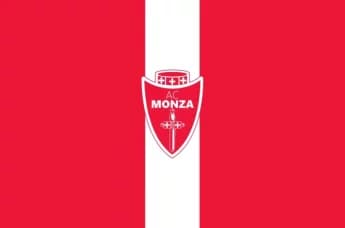Since its founding in 1897, Juventus has built a legacy of resilience and success, becoming a cornerstone of Italian football with a bright future ahead.
Juventus Football Club, widely referred to as Juventus or Juve, was established in 1897 in Turin, Italy. This club stands as one of the most ancient and successful football institutions globally, frequently considered the foundation of Italian football. Throughout its extensive history, Juventus has become a symbol of dominance, professionalism, and determination. The team’s iconic black and white striped jerseys are recognized around the world, and their nickname, La Vecchia Signora ('The Old Lady'), signifies the club's enduring legacy, tradition, and esteemed position in the realm of football.
Juventus was originally established by a group of young students in Turin, and from the very beginning, it has been dedicated to achieving success. The club began as a regional team, but its development in the early 20th century propelled it to a leading position in Italian football. Juventus has consistently represented excellence, not just in domestic tournaments, but also on the European stage and beyond. Over the years, the club has garnered admiration for its principles of professionalism, consistency, and a strong work ethic, establishing itself as a respected entity in the world of football.
The culture of the team is closely linked to its successful past, earning it a reputation as one of the most well-organized and disciplined clubs worldwide. Juventus is recognized for its capability to consistently draw in top talent, construct outstanding squads, and compete at the highest levels annually. The club is also renowned for its exceptionally loyal fanbase, known as 'Bianconeri', who passionately support their team around the world.
Accomplishments of the Team
Juventus stands as one of the most successful football clubs in history, excelling in both domestic and international arenas. The achievements of the club highlight its enduring dominance in the sport.
The club has consistently engaged in prominent international tournaments and is well-known for its robust and tactical performances, which have contributed to their standing among the elite of European football.
Strengths and Limitations
One of the most significant strengths of Juventus has always been their exceptional defense. The club has developed some of the greatest defenders in football history, such as Gianluigi Buffon, Giorgio Chiellini, Leonardo Bonucci, and Antonio Cabrini, each playing a vital role in the team's defensive accomplishments. Their proficiency in defending has been the cornerstone of their success, and even in contemporary football, Juventus remains committed to maintaining solid defensive structures. Juventus is recognized for its tactical savvy and adaptability, having thrived under various managers, including Marcello Lippi and Massimiliano Allegri. This capacity to modify formations, adjust strategies, and leverage the team's strengths has enabled the club to achieve sustained success across different periods.
The club has featured several exceptional midfielders who have played a pivotal role in their success, including Michel Platini, Andrea Pirlo, Paul Pogba, and Miralem Pjanic. Juventus's midfield typically serves as the driving force of the team, dictating the pace of the game while facilitating smooth transitions between defense and attack. Juventus has developed a robust winning mentality, a philosophy built over decades of triumphs. This mindset is deeply embedded in the club’s identity, manifesting in their unwavering pursuit of victories across all competitions. Their determination to win remains apparent even during seasons of rebuilding or when facing obstacles.
Although the experienced players at Juventus have been a significant asset over the years, the club’s growing dependency on older athletes has emerged as a potential drawback. Prominent figures like Giorgio Chiellini and Andrea Pirlo (during his tenure) are past their peak performance years, and while their experience remains beneficial, there is a pressing need for younger talent to infuse the squad with new energy. Despite boasting some of the world’s finest attacking players, Juventus has occasionally faced challenges in achieving offensive consistency. The exit of Cristiano Ronaldo in 2021 created a notable void in their attacking lineup, and although they possess talented forwards like Dusan Vlahovic, there have been instances where the team has struggled to maintain a decisive advantage in crucial matches.
Juventus's recent performances in European competitions have been disappointing, especially in the UEFA Champions League. Their failure to secure a win in this tournament since 1996, despite reaching the finals multiple times over the past decade, underscores their difficulties in high-stakes matches on the continental stage.
Tactics & Playing Style
Juventus is commonly known for its disciplined and organized playing style, prioritizing strong defensive structures and tactical versatility. This style is frequently referred to as 'catenaccio' (meaning 'bolt' in Italian), a defensive strategy aimed at neutralizing the opponent's attacking threats while maintaining a compact formation.
Under Max Allegri's guidance, Juventus typically utilizes formations like 4-3-3 or 3-5-2. In these setups, the team employs two central defenders along with wing-backs to strengthen their defensive line, while the fullbacks are given the freedom to advance when the team has possession of the ball. The midfield is usually composed of diligent players who excel at disrupting opposing attacks and facilitating ball movement. The attacking line generally features a mix of seasoned strikers and agile wingers, prioritizing swift counter-attacks that capitalize on spaces left open by the opposing team.
In recent times, Juventus has aimed to adapt by adopting a possession-oriented style of play, influenced by managers such as Andrea Pirlo (2020-2021). Nevertheless, this shift towards a more dynamic and offensive approach has yielded inconsistent outcomes. Although they continue to be a difficult team to break down, there are instances when Juventus's attacking tactics appear disjointed, particularly against teams that employ high pressing.
Memorable Matches
Prospects for the Future
As we look to the future, Juventus is currently undergoing a significant transition. Following their successful run during the 2010s, the club is now concentrating on rejuvenating its squad with fresh, talented players while maintaining their established winning mentality. The organization is making substantial investments in youth development, with promising talents such as Dusan Vlahovic, Federico Chiesa, and Moise Kean anticipated to play pivotal roles in the years to come.
Juventus is currently working on modernizing its style of play to align with the rapid and dynamic attacking football that has become prevalent in Europe. With a steady influx of young talent and a solid financial and infrastructural backing, Juventus is well-positioned to reclaim its esteemed status at the top of European football in the years to come.







